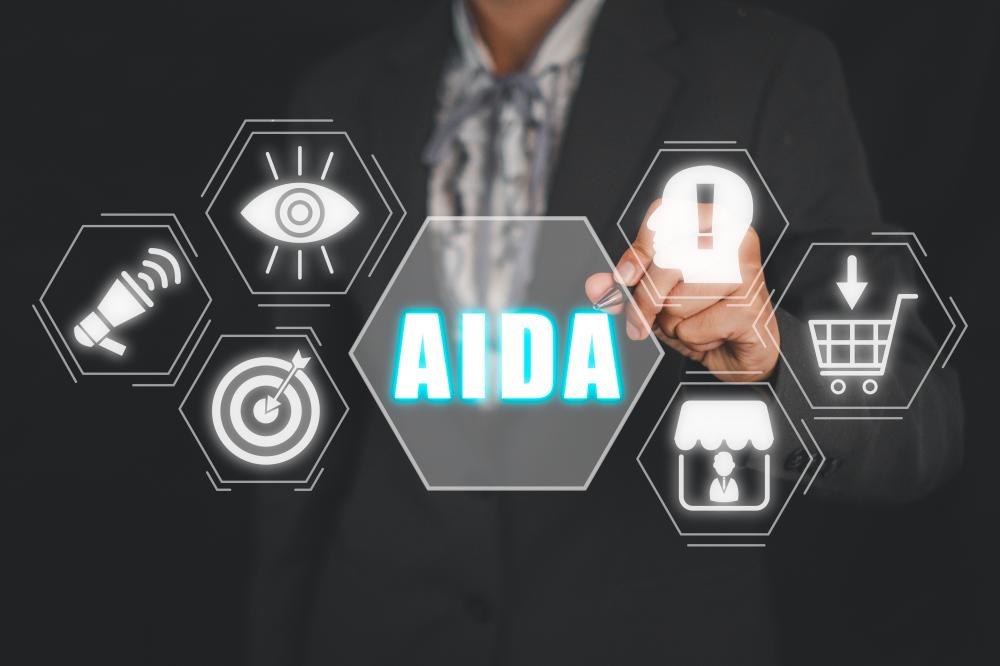HIPAA EDI transations
Table of Contents
Understanding HIPAA EDI Transactions The Essence of HIPAA EDI Key HIPAA EDI Transactions Personal Experience with EDI Benefits of HIPAA EDI in Healthcare Streamlined Processes Increased Accuracy and Security Navigating HIPAA EDI Compliance Compliance Measures in Place Evolution of HIPAA EDI The Future of EDI in Healthcare Incorporating Technology and Innovation Embracing the Digital Evolution Final Thoughts What are EDI transactions processed by HIPAA? What electronic transactions does HIPAA cover? What is an example of an EDI transaction in healthcare? What are the HIPAA X12 transactions? How does HIPAAsuite ensure the security of EDI transactions? Resources Section 
Understanding HIPAA EDI Transactions
Let me take you on a journey through the world of HIPAA EDI transactions. Imagine a vast network of healthcare data, seamlessly exchanging information amongst providers, payers, and patients. This isn't a futuristic vision but the current reality shaped by the HIPAA EDI standards that revolutionized how healthcare information is processed and transmitted across the United States.
The Essence of HIPAA EDI
Electronic Data Interchange (EDI) is the heartbeat of healthcare transactions, ensuring the fluid movement of data that is both accurate and secure. When talking about hipaa edi transations, we're referring to a set of standardized transactions covered under the Health Insurance Portability and Accountability Act (HIPAA) that govern the electronic transmission of specific healthcare data.
The adoption of these standards means that when I send a patient's treatment details to their insurance provider or check the status of a claim, there's a universal language that allows different systems to understand each other, reducing misunderstandings and speeding up processes.
Key HIPAA EDI Transactions
At HIPAAsuite, we specialize in demystifying the complexities of these transactions. Here are some of the key hipaa edi transations that our software handles:
- Claim Submission (837): This is the workhorse of healthcare billing, facilitating the electronic submission of healthcare claim information from providers to payers.
- Remittance Advice (835): Through this transaction, providers receive payment details and explanations of benefits from payers.
- Eligibility Inquiry/Response (270/271): Before administering services, it's crucial to verify a patient's eligibility for insurance coverage.
These transactions are designed to elevate the efficiency of healthcare operations, ensuring that patients receive timely care while providers are reimbursed promptly and accurately.
Personal Experience with EDI
Reflecting on my own journey with EDI, I remember the pre-EDI days characterized by mounds of paperwork and manual errors. Adopting EDI has led to a significant reduction in errors and turnaround time, enhancing patient satisfaction and making the administrative aspects of healthcare more manageable.
Benefits of HIPAA EDI in Healthcare
The implementation of hipaa edi transations has brought a plethora of benefits to the healthcare sector:
Streamlined Processes
From admission to discharge and billing, EDI automates and standardizes transactions, cutting down on administrative load and allowing healthcare providers to focus on what matters most--patient care.
EDI reduces the need for manual data entry, resulting in fewer errors, decreased processing times, and reduced administrative costs. This efficiency isn't just beneficial for healthcare providers; it also means quicker, more accurate handling of patient claims by insurers.
Increased Accuracy and Security
In our suite, the Claim Master 837 ensures that billing information is sent with precision, and our RealTime Server processes transactions swiftly. Coupled with the robust security measures inherent in EDI, we can guarantee that sensitive patient data is exchanged securely, complying with HIPAA's stringent privacy standards.
Moreover, the automated checks and balances integrated into our software minimize the risk of errors that were once commonplace with paper-based systems.
Navigating HIPAA EDI Compliance
Now, let's delve into the heart of compliance. Our HIPAA Compliance Editor is a testament to our commitment to ensuring our clients meet all regulatory requirements. Compliance isn't just about following rules; it's about ensuring the privacy and security of patient information, an objective we uphold with utmost seriousness.
Compliance Measures in Place
We have designed our software to automatically align with the latest HIPAA standards, taking care of technical updates so that healthcare entities can focus on delivery of care. Our dashboard provides an integrated view of all transactions, ensuring traceability and accountability.
Adhering to requirements such as using the correct code sets (like ICD-10 for diagnoses) and transaction formats (like ASC X12 Version 5010 for hipaa edi transations) is baked into our system's DNA. These measures are not just about ticking off checkboxes; they're about providing the healthcare industry with the tools to ensure seamless, secure, and efficient patient care.
Evolution of HIPAA EDI
No system is static, especially not in healthcare. We keep our pulse on the evolving landscape of healthcare regulations and technology. Changes such as the transition from ICD-9 to ICD-10, and the ongoing adjustments to HIPAA regulations, are on our radar. Our clients rest easy knowing they're always ahead of the curve with HIPAAsuite's solutions.

The Future of EDI in Healthcare
The future is bright for EDI in the healthcare industry. With continuous advancements in technology, we envisage an era of even more streamlined transactions, where AI plays a role in predictive analytics and big data contributes to personalized care plans.
Incorporating Technology and Innovation
At HIPAAsuite, innovation is not just a buzzword; it's a commitment. We continuously explore new technologies to integrate into our offerings, like blockchain for enhanced security and smart contracts for streamlined provider-payer interactions.
The relationship between healthcare and technology grows stronger each day, and with EDI as the linchpin, we're excited about the possibilities. For instance, imagine a future where wearables communicate directly with healthcare providers' systems, using hipaa edi transations to securely transmit real-time health data.
Embracing the Digital Evolution
As we embrace this digital evolution, our role at HIPAAsuite is to be the steadfast partner to healthcare entities navigating this shift. We're not just providing software; we're forging a path towards a more connected, efficient, and patient-centric healthcare system.
We invite healthcare professionals and organizations to join us on this exciting journey. The evolution of healthcare is continuous, and we at HIPAAsuite are dedicated to making each transition smoother, each hipaa edi transations more secure, and each client experience more satisfying.
Final Thoughts
As pioneers in the realm of HIPAA-compliant EDI solutions, we've witnessed the transformation of healthcare transactions from cumbersome paper trails to the streamlined digital processes of today. The adoption of hipaa edi transations has been a game-changer for efficiency, accuracy, and compliance in healthcare.
We take pride in our part of this industry's journey towards innovation and patient-centered care. We'll continue to stand by our commitment to providing not only software solutions but a comprehensive service that empowers healthcare providers and payers alike to focus on what's truly important - delivering exceptional care.
Any healthcare entity, regardless of size, can take advantage of the benefits of EDI with the help of HIPAAsuite, where our goal is to make this technology accessible and manageable for all. Together, let's advance the world of healthcare one transaction at a time.

What are EDI transactions processed by HIPAA?
At HIPAAsuite, we dive deep into the streamline of healthcare communication with EDI transactions mandated by HIPAA. These transactions include a variety of formats, each serving a unique function in the healthcare industry. For instance, the claim submission, known as the 837 transaction, is a fundamental component, allowing healthcare providers to submit billing information to payers electronically. What this does is it drastically reduces the paperwork and potential errors associated with manual submissions. With our tailored software solutions, providers can ensure that their claims are processed accurately and in compliance with HIPAA standards, ensuring a more efficient healthcare system overall.
What electronic transactions does HIPAA cover?
HIPAA's umbrella is quite broad when it comes to electronic transactions. It covers numerous standardized exchanges including claim submissions, remittances, eligibility inquiries, referral authorization and certification, as well as claims status requests. It's all about creating a universal language that healthcare entities can use to communicate effectively, thus reducing confusion and delays. At HIPAAsuite, each of these transactions is facilitated by our software, aligning with HIPAA's aim to make healthcare interactions as seamless as possible.
What is an example of an EDI transaction in healthcare?
Let me paint a picture for you: imagine a healthcare provider has just seen a patient, and it's time to handle the billing. Instead of filling out a complex paper claim form, they use the 837 transaction, one of the most common EDI transactions in healthcare. They input the service data, and the software ensures that all the necessary coding, like ICD and CPT codes, are accurate and compliant. The claim electronically zooms over to the payer, who then reviews and processes it. What used to take days or weeks with paper claims now unfolds swiftly and with fewer mistakes, transforming the healthcare billing landscape. That's the power of EDI in action, and a day-to-day reality with HIPAAsuite's solutions.
What are the HIPAA X12 transactions?
The X12 transactions are like the building blocks for electronic data interchange in healthcare. Each of these transactions has a specific 'number' like 837 for claims or 835 for payment advice. HIPAA mandates these standards to ensure every participant in the healthcare process is speaking the same electronic language. Through our software, these transactions become more than just numbers; they embody the agility and accuracy healthcare providers need. Imagine the difference between a handwritten letter and an instant message - that's the type of transformation we're talking about with HIPAA X12 transactions.
How does HIPAAsuite ensure the security of EDI transactions?
Security is at the heart of what we do at HIPAAsuite. We understand that the data we're dealing with is sensitive, containing personal health information that must be protected at all costs. By integrating robust security protocols and utilizing encryption, we ensure that every EDI transaction processed through our software is secure from unauthorized access. It's like we're the guardians of this information, meticulously working to uphold the trust that healthcare providers and patients place in us. Additionally, our continuous monitoring and compliance updates mean that as the digital landscape evolves, so do our defenses. It is our commitment to protect and manage your EDI transactions with the highest standard of security.
Resources Section
- Centers for Medicare & Medicaid Services (CMS): Offers comprehensive information on HIPAA transaction and code set standards, including EDI standards for electronic healthcare transactions. CMS EDI Resources
- Office for Civil Rights (OCR) - HIPAA: Provides guidance on the HIPAA Privacy and Security Rules, and educational materials including information about electronic transactions. HIPAA Resources
- National Center for Health Statistics (NCHS) - ICD-10: Offers resources on the International Classification of Diseases, 10th Revision (ICD-10) used in healthcare transactions. ICD-10 Resources
- Workgroup for Electronic Data Interchange (WEDI): Provides a library of information and guidance on EDI and HIPAA related topics. WEDI Resources
- Health IT.gov: Offers a variety of resources and guidelines on how health information technology supports the electronic exchange of health information. Health IT Resources
- Centers for Disease Control and Prevention (CDC) - Electronic Health Records (EHRs): Provides information on electronic health records and how they connect with EDI. EHRs and Public Health Reporting
- Agency for Healthcare Research and Quality (AHRQ) - Health IT: Features research and resources on health information technology including electronic health records and EDI. AHRQ Health IT Resources


































